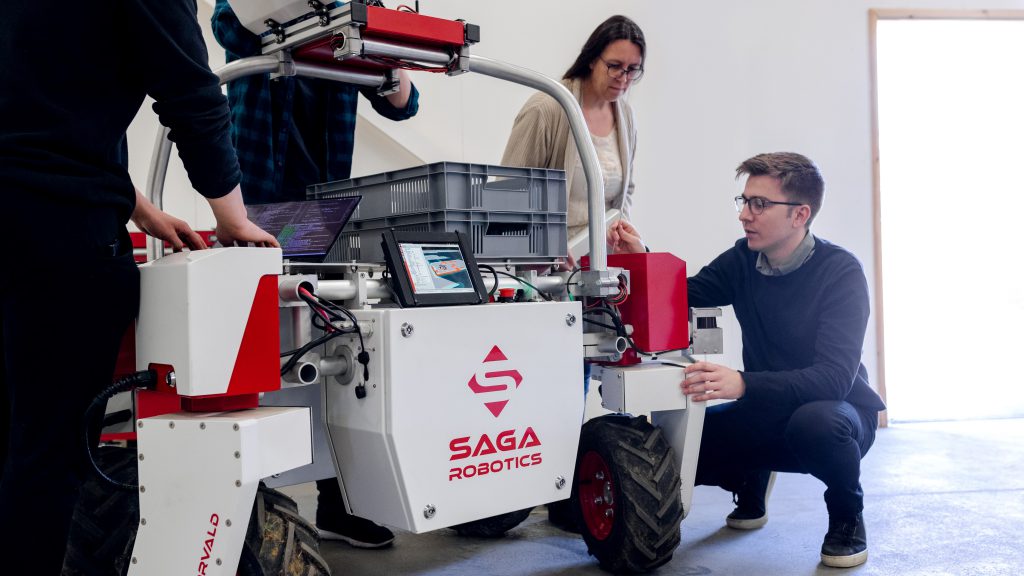
As seen in U.S. News & World Report, by Ilana Kowarski
Understanding how and why machines work isn’t necessarily intuitive. Some devices that seem simple on the surface, such as conveyor belts, actually rely on intricate technology and precise handiwork.
A mechanical engineering degree teaches someone how to build contraptions with moving parts, ranging from little objects like watches to enormous vehicles like space shuttles. Robot building teams often include mechanical engineers, and medical device manufacturing also involves mechanical engineering.
“It really is pretty hard to think of something that exists in the world that a mechanical engineer hasn’t had a hand in designing,” says Robert Hurlston, chief engineer and co-founder with Fidelis Engineering Associates, a Michigan-based engineering consultancy.
Hurlston, who has a doctorate in nuclear engineering, says the distinction between mechanical engineering and other areas of engineering is that it tends to focus on moving objects like cars and planes as opposed to stationary objects like bridges and buildings.
Eric Johnson, director of innovation with Bright Machines – a company that designs technology for the manufacturing industry – says that mechanical engineering was out-of-fashion for a long time due to an increased emphasis on other areas of engineering like software engineering and electrical engineering. But he suggests that it is now “cool again.”
Johnson notes that powerful emerging technologies like solar panels, electric cars and reusable rockets could not possibly be designed and produced without the labor of mechanical engineers.
Allen Robinson, head of the mechanical engineering department at Carnegie Mellon University in Pittsburgh, notes that “the emergence of data science” has increased the number and variety of job options for mechanical engineers. They can now combine “machine learning” with engineering to address a wide range of formidable technical problems, “from water desalination to gene expression,” says Robinson, who has a doctorate in mechanical engineering.
Here is an overview of the numerous career options for someone who earns a mechanical engineering degree.
Jobs for People With Mechanical Engineering Degrees
The problem-solving approach and clear communication style that mechanical engineering students are taught are valuable skills, Johnson says, noting that mechanical engineers are typically excellent at analyzing and explaining complicated issues.
Because of their ability to understand and clarify difficult concepts and identify solutions to challenges, mechanical engineers are often recruited by management consulting firms, Johnson says. Mechanical engineers can also become outstanding project managers or business executives, he explains.
Joe Heaney, president of Lotus Biosecurity – a company that develops sanitation technology solutions for businesses operating in the midst of the coronavirus pandemic – notes that individuals with mechanical engineering degrees are well-suited for technical sales positions that involve explaining and customizing a technology firm’s products for prospective clients.
Mechanical engineers are also involved with research and development at many scientific laboratories, according to Heaney, who earned his bachelor’s degree in mechanical engineering from Baltimore-based Johns Hopkins University.
“Traditionally, mechanical engineering graduates have often gone into manufacturing, helping to design many of the home products and appliances that we use on a daily basis,” Bala Balachandran, chair of the mechanical engineering department at the University of Maryland’s A. James Clark School of Engineering, wrote in an email.
“With the emergence of advanced technologies, the door is now open for mechanical engineers to become involved in nanotech – for instance, in designing medicines and devices that work at a very tiny scale,” says Balachandran, who has a doctorate in engineering mechanics.
Marie Buharin, a hiring manager in the medical device industry, says she routinely hires mechanical engineers.
“We hire many mechanical engineers in the medical device industry,” says Buharin, who is also the founder of Modernesse, a website that provides career development advice. “It is one of the most commonly found majors among many departments within medical device companies.”
Lt. Col. Robert Rabb, department head and assistant dean for assessment at The Citadel – a military college in South Carolina – describes mechanical engineering as “one of the broadest engineering disciplines.”
Rabb – who has bachelor’s, master’s and doctoral degrees in mechanical engineering – notes that mechanical engineers can work on ambitious government building projects and often advance quickly into project leadership roles.
Mechanical engineers typically work with their hands, Rabb says. “Mechanical engineers are not at a desk all the time. We have to design, develop, build, and test. This requires us to see and touch something besides a computer.”
These are some examples of jobs where a mechanical engineering credential is valuable, according to experts.
- Aerospace engineer.
- Automotive engineer.
- Biomedical engineer.
- Business executive.
- Construction engineer.
- Entrepreneur.
- Intellectual property attorney.
- Manufacturing engineer.
- Management consultant.
- Mechanical engineer.
- Patent lawyer.
- Production engineer.
- Project lead.
- Project manager.
- Petroleum engineer.
- Process engineer.
- Product designer.
- Quality engineer.
- Sales engineer.
- Structural engineer.
- Technology specialist.
- Thermal engineer.
Employment Prospects Within Mechanical Engineering
According to the U.S. Bureau of Labor Statistics, the median salary among U.S. mechanical engineers in May 2019 was $88,430. It is possible to enter the profession with only a bachelor’s degree.
Someone who is considering a mechanical engineering education but who may feel unready for college may want to pursue a trade industrial apprenticeship, says Brian Keating, director of the Joint Apprenticeship & Training Fund for the United Service Workers Union Local 355 chapter in New York.
Keating notes that alumni of building trade apprenticeship programs sometimes go on to become mechanical engineers.
Experts note that it is often beneficial for mechanical engineers to seek supplemental education in computer science or business, but also suggest that such additional training is optional.
“A mechanical engineering degree affords the individual a virtual Swiss Army knife of skill sets,” Keith F. Noe, a partner with Lando & Anastasi, LLP, a Boston-based intellectual property law firm, wrote in an email.
Noe, who has a bachelor’s degree in mechanical engineering, says that the skills cultivated via a degree in this field are applicable to a wide array of industries and work assignments.
“A mechanical engineer has opportunities to work in the automotive, heating and cooling, manufacturing and aeronautic industries, to name a few,” he explains. “Projects can be revolutionary or evolutionary.”
Some mechanical engineering projects involve designing new products while others focus on either cost reduction, quality improvement or both.
“To use a sports analogy, a Mechanical Engineer is the utility player of the engineering world,” Tony Sanger, a senior vice president at the Turner & Townsend multinational consulting firm, wrote in an email. “The opportunities are endless.”

 Citadel professor published in the Smithsonian Magazine
Citadel professor published in the Smithsonian Magazine Citadel dean named to South Carolina Humanities board of directors
Citadel dean named to South Carolina Humanities board of directors Employee of The Citadel DoD Cyber Institute selected to be deputy commanding general of U.S. Army’s Cyber Center of Excellence
Employee of The Citadel DoD Cyber Institute selected to be deputy commanding general of U.S. Army’s Cyber Center of Excellence


